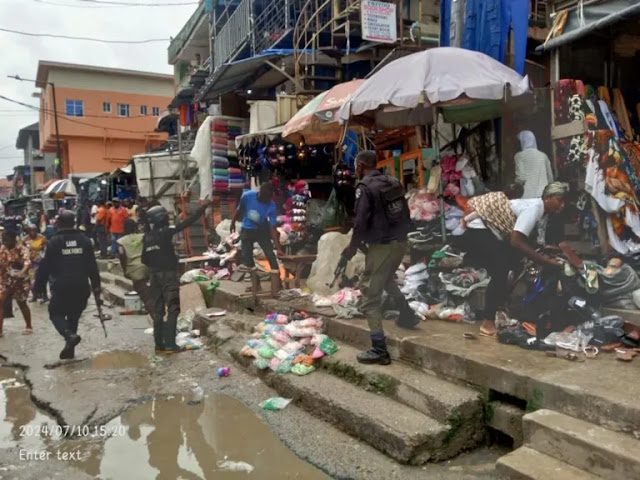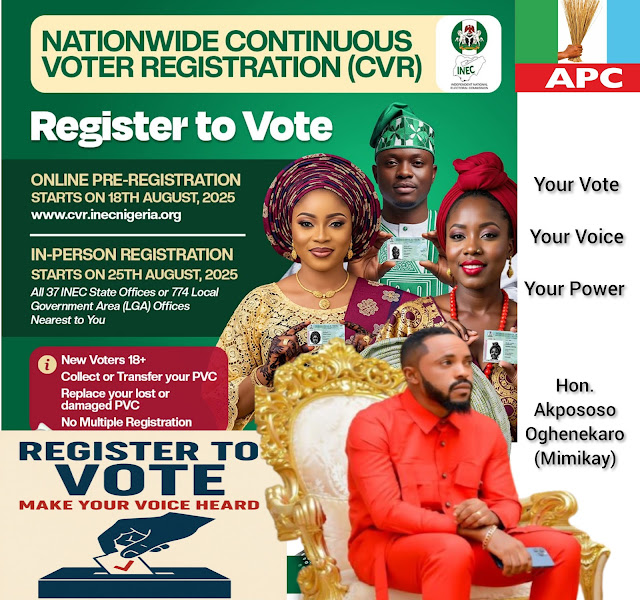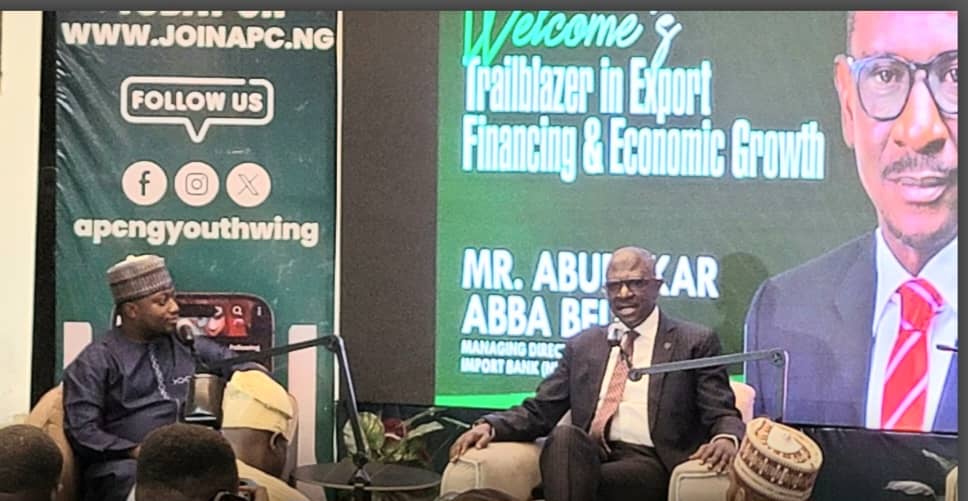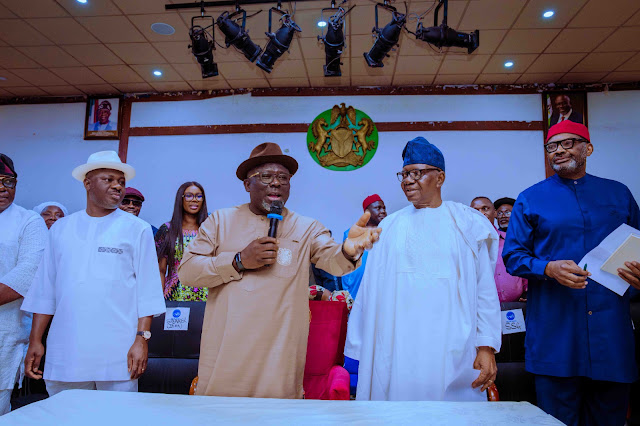In a decisive move to restore order and enhance the aesthetic appeal of Lagos’s commercial hub, the Lagos State Environmental Protection Agency (LASEPA), through its Task Force on Special Offences, conducted a significant enforcement operation on September 1, 2025, targeting street traders and illegal structures in Victoria Island. The operation, aimed at curbing environmental infractions and ensuring compliance with urban planning regulations, reflects the Lagos State Government’s ongoing commitment to transforming the city into a modern, orderly, and sustainable metropolis. Led by CSP Shola Jejeloye, the task force cleared makeshift stalls, shanties, and roadside markets obstructing major roads, addressing long-standing issues of congestion, pollution, and public safety.
This article delves into the details of the operation, examines its significance within the context of Lagos’s urban development agenda, analyzes the socio-economic implications for affected traders, and explores the challenges and opportunities for achieving a balance between enforcement and inclusive governance. It also offers policy recommendations to ensure sustainable urban management while addressing the needs of vulnerable populations.
Details of the Victoria Island Operation
The enforcement operation in Victoria Island, one of Lagos’s most prominent commercial and residential districts, was executed with precision and coordination. The Task Force on Special Offences, a unit under LASEPA, targeted areas notorious for street trading, including Ahmadu Bello Way, Ozumba Mbadiwe Avenue, and Adeola Odeku Street. These locations, known for their high foot traffic and economic activity, had become hotspots for makeshift stalls, roadside vendors, and illegal structures that obstructed pedestrian pathways, caused traffic congestion, and contributed to environmental degradation.
CSP Shola Jejeloye, head of the task force, emphasized that the operation was not intended to victimize traders but to restore order and ensure compliance with environmental and urban planning regulations. “Victoria Island is the face of Lagos, a hub for business and tourism. Allowing illegal trading and structures to persist undermines the state’s vision for a clean, safe, and organized city,” he stated. The task force dismantled shanties, confiscated goods displayed on roadsides, and issued warnings to traders to relocate to designated markets.
The operation was part of a broader initiative by the Lagos State Government to enforce the state’s Environmental Management and Protection Law, which prohibits street trading and unauthorized structures in public spaces. LASEPA’s statement, issued post-operation, highlighted the environmental hazards posed by unregulated trading, including littering, noise pollution, and increased waste generation. The agency also noted that the operation followed several warnings and sensitization campaigns urging traders to comply with regulations.
Preliminary reports indicate that over 200 makeshift stalls were dismantled, and several traders were temporarily detained for obstructing enforcement officers. However, no injuries or significant confrontations were reported, reflecting the task force’s emphasis on professionalism. The operation also included plans for continuous monitoring to prevent traders from returning to the cleared areas, with LASEPA vowing to sustain enforcement efforts across Lagos.
Context: Lagos’s Urban Development Agenda
Lagos, Nigeria’s economic powerhouse and Africa’s most populous city, faces unique challenges in managing its rapid urbanization. With an estimated population of over 20 million, the city grapples with issues such as overcrowding, traffic congestion, environmental degradation, and informal economic activities. Victoria Island, a key commercial district hosting multinational corporations, embassies, and luxury residences, is central to Lagos’s identity as a global city. However, the proliferation of street trading and illegal structures has long undermined the area’s aesthetic and functional appeal.
The Lagos State Government, under Governor Babajide Sanwo-Olu, has prioritized urban renewal as a cornerstone of its development agenda, encapsulated in the THEMES+ framework (Traffic Management and Transportation, Health and Environment, Education and Technology, Making Lagos a 21st Century Economy, Entertainment and Tourism, and Security and Governance). The clearance of street traders aligns with the “Health and Environment” pillar, which emphasizes sustainable urban management, waste reduction, and environmental protection.
Previous administrations, notably under former Governor Babatunde Fashola and Akinwunmi Ambode, also implemented aggressive enforcement campaigns to curb street trading and informal settlements. However, these efforts often faced resistance from traders and criticism from civil society groups, who argued that such actions marginalized vulnerable populations without providing viable alternatives. The Sanwo-Olu administration has sought to address these concerns through a combination of enforcement, sensitization, and investments in designated markets, but the challenge of balancing order with inclusivity remains.
Socio-Economic Implications for Street Traders
Street trading is a critical component of Lagos’s informal economy, which accounts for an estimated 60% of the city’s economic activity, according to the International Labour Organization. For many low-income residents, particularly women and youth, street vending provides a lifeline, offering flexible income opportunities in the absence of formal employment. The clearance operation in Victoria Island, while aimed at restoring order, raises significant socio-economic questions about the livelihoods of affected traders.
Many street traders in Victoria Island sell goods ranging from food items and clothing to electronics, catering to both low-income residents and workers in the area’s corporate offices. The operation’s disruption of their activities could exacerbate poverty and unemployment, particularly in a city where the unemployment rate stood at 37.2% in 2024, according to the National Bureau of Statistics. Traders interviewed during similar operations in the past have expressed frustration over the lack of affordable alternatives, with many unable to afford stalls in designated markets like Tejuosho or Oshodi.
The Lagos State Government has acknowledged these challenges, with LASEPA stating that traders were given prior warnings and encouraged to relocate to designated markets. However, the high cost of renting stalls, coupled with bureaucratic hurdles, often deters traders from formal markets. Civil society groups have called for more inclusive policies, such as subsidized market spaces and microfinance programs, to support traders’ transition to formal settings.
The operation also highlights the tension between formal and informal economies in Lagos. While street trading contributes to economic vibrancy, it often operates outside regulatory frameworks, leading to issues like tax evasion, environmental degradation, and public safety risks. Balancing the need for order with the economic realities of informal workers is a critical challenge for the Lagos State Government.
Broader Context: Nigeria’s Urban and Economic Challenges
The Victoria Island operation must be viewed within the broader context of Nigeria’s urban and economic challenges. Nigeria, Africa’s largest economy, faces significant hurdles in managing its rapidly growing urban population, with cities like Lagos, Abuja, and Port Harcourt experiencing unprecedented growth. According to the United Nations, Nigeria’s urban population is projected to reach 70% by 2050, placing immense pressure on infrastructure, housing, and public services.
Lagos, as Nigeria’s economic engine, generates over 30% of the country’s GDP and serves as a gateway for foreign investment. However, the city’s growth has outpaced its infrastructure, leading to challenges such as traffic congestion, inadequate waste management, and informal settlements. The informal economy, while a vital source of livelihoods, often clashes with the government’s vision for a modern, organized city.
Economically, Nigeria has faced significant headwinds, including high inflation (over 30% in 2024), naira depreciation, and reliance on oil exports. These factors have eroded consumer purchasing power, increased poverty, and fueled informal economic activities as citizens seek alternative income sources. The Lagos State Government’s efforts to formalize the economy, through initiatives like the Lagos State Employment Trust Fund and market development projects, aim to address these challenges, but progress has been uneven.
The Victoria Island operation also reflects broader national trends in urban enforcement. Similar operations have been conducted in cities like Abuja, where the Federal Capital Territory Administration has demolished shanties, and Port Harcourt, where street trading has been restricted. These efforts highlight the tension between urban planning and the needs of informal workers, a challenge that requires innovative solutions.
Environmental and Public Safety Impacts
The Lagos State Government’s rationale for the operation centers on environmental and public safety concerns. Street trading in Victoria Island has contributed to significant environmental degradation, including littering, improper waste disposal, and air pollution from makeshift cooking stalls. These activities exacerbate Lagos’s waste management challenges, with the city generating over 13,000 tons of waste daily, according to LASEPA.
Public safety is another critical concern. Makeshift stalls and roadside markets often obstruct pedestrian pathways and roads, leading to traffic accidents and congestion. In Victoria Island, where major roads like Ahmadu Bello Way are vital for commerce and connectivity, such obstructions pose risks to both residents and businesses. The operation aims to mitigate these risks, ensuring safer and more accessible public spaces.
However, critics argue that enforcement alone is insufficient without addressing the root causes of street trading, such as poverty and lack of formal employment. The government’s focus on environmental protection must be balanced with policies that support vulnerable populations, ensuring that enforcement does not exacerbate social inequalities.
Challenges to Sustainable Urban Management
The Victoria Island operation highlights several challenges to achieving sustainable urban management in Lagos:
Economic Displacement: The removal of street traders risks displacing thousands of low-income workers, many of whom rely on vending for survival. Without viable alternatives, these traders may relocate to other unregulated areas, perpetuating the cycle of enforcement and resistance.
Resistance and Public Perception: Past enforcement operations have sparked protests and negative publicity, with traders and civil society groups accusing the government of insensitivity. The Victoria Island operation, while executed without major incidents, could face similar backlash if traders’ livelihoods are not addressed.
Infrastructure Deficits: Lagos’s limited infrastructure, including insufficient market spaces and poor waste management systems, contributes to the persistence of street trading. Expanding and modernizing markets is essential to accommodate traders.
Socio-Economic Inequalities: The informal economy reflects broader inequalities in Lagos, where access to education, employment, and capital is uneven. Addressing these structural issues is critical to reducing reliance on street trading.
Enforcement Sustainability: Continuous monitoring to prevent traders from returning requires significant resources and coordination. Without sustained efforts, cleared areas may revert to their previous state.
Opportunities for Inclusive Urban Development
Despite these challenges, the operation presents opportunities to advance Lagos’s urban development agenda in a more inclusive manner:
Designated Market Development: The government can invest in modern, affordable markets to accommodate displaced traders. Initiatives like the Lagos Market Development Programme, which has rehabilitated markets like Tejuosho, could be scaled up.
Microfinance and SME Support: Providing microfinance loans and training for traders can facilitate their transition to formal markets, enhancing their economic resilience. Partnerships with institutions like the Lagos State Employment Trust Fund can drive these efforts.
Public-Private Partnerships: Collaborating with private developers to build affordable market spaces and waste management facilities can address infrastructure deficits while creating jobs.
Sensitization and Engagement: Expanding sensitization campaigns to educate traders on environmental regulations and available alternatives can reduce resistance and foster compliance.
Digital Solutions: Leveraging technology, such as mobile apps for market stall allocation and waste reporting, can streamline urban management and enhance trader inclusion.
Policy Recommendations
To ensure the success of enforcement operations and promote sustainable urban development, the Lagos State Government should consider the following:
Develop Affordable Markets: Invest in modern, subsidized market spaces in strategic locations like Victoria Island to accommodate traders. These markets should include amenities like water, electricity, and sanitation to attract vendors.
Enhance Economic Support: Expand microfinance programs and SME training initiatives to support traders’ transition to formal markets. The Lagos State Employment Trust Fund could prioritize street vendors in its lending programs.
Strengthen Community Engagement: Engage traders, community leaders, and civil society groups in urban planning decisions to foster buy-in and reduce resistance. Regular town hall meetings can address traders’ concerns.
Improve Waste Management: Invest in waste collection and recycling infrastructure to address environmental degradation caused by informal trading. Public awareness campaigns can promote proper waste disposal.
Sustain Enforcement Efforts: Establish a dedicated task force for continuous monitoring and enforcement, supported by community policing to prevent traders from returning to cleared areas.
Promote Financial Inclusion: Partner with financial institutions to provide digital banking solutions for traders, enabling them to access credit and save securely.
Broader Implications for Nigeria’s Urban Future
The Victoria Island operation reflects broader trends in Nigeria’s urban management, as cities grapple with the challenges of rapid urbanization and informal economies. Lagos’s experience offers lessons for other states, such as Rivers and Kano, where similar enforcement campaigns have been implemented. By balancing enforcement with inclusive policies, Lagos can set a model for sustainable urban development in Nigeria.
The operation also highlights the need for a national urban policy to address the challenges of informal economies. With Nigeria’s urban population growing rapidly, the federal government should collaborate with states to develop integrated urban planning frameworks that prioritize inclusivity, environmental sustainability, and economic growth.
Politically, the operation underscores the importance of public perception in governance. The Sanwo-Olu administration’s ability to address traders’ concerns while maintaining order will shape its legacy and influence voter sentiment ahead of the 2027 elections. Transparent communication and tangible support for affected traders are critical to sustaining public trust.
Looking Ahead: A Vision for Lagos
The clearance of street traders in Victoria Island is a bold step toward realizing Lagos’s vision as a modern, sustainable, and inclusive city. By addressing the environmental and safety challenges posed by unregulated trading, the government is laying the groundwork for a more organized urban landscape. However, the success of this operation hinges on the government’s ability to provide viable alternatives for traders and address the root causes of informal economic activities.
As Lagos continues its transformation into a 21st-century metropolis, the balance between enforcement and inclusivity will be critical. Investments in infrastructure, economic support, and community engagement can ensure that urban development benefits all residents, not just the elite. The Victoria Island operation, while a small piece of this puzzle, offers an opportunity to rethink urban management in a way that prioritizes both order and equity.
In conclusion, the Lagos Task Force’s operation in Victoria Island is a microcosm of the challenges and opportunities facing Nigeria’s urban centers. By combining enforcement with inclusive policies, the Lagos State Government can create a model for sustainable urban development that balances the needs of traders, businesses, and residents. As CSP Jejeloye stated, “Victoria Island is the face of Lagos.” With the right approach, it can also be a symbol of the city’s commitment to progress and inclusivity.





